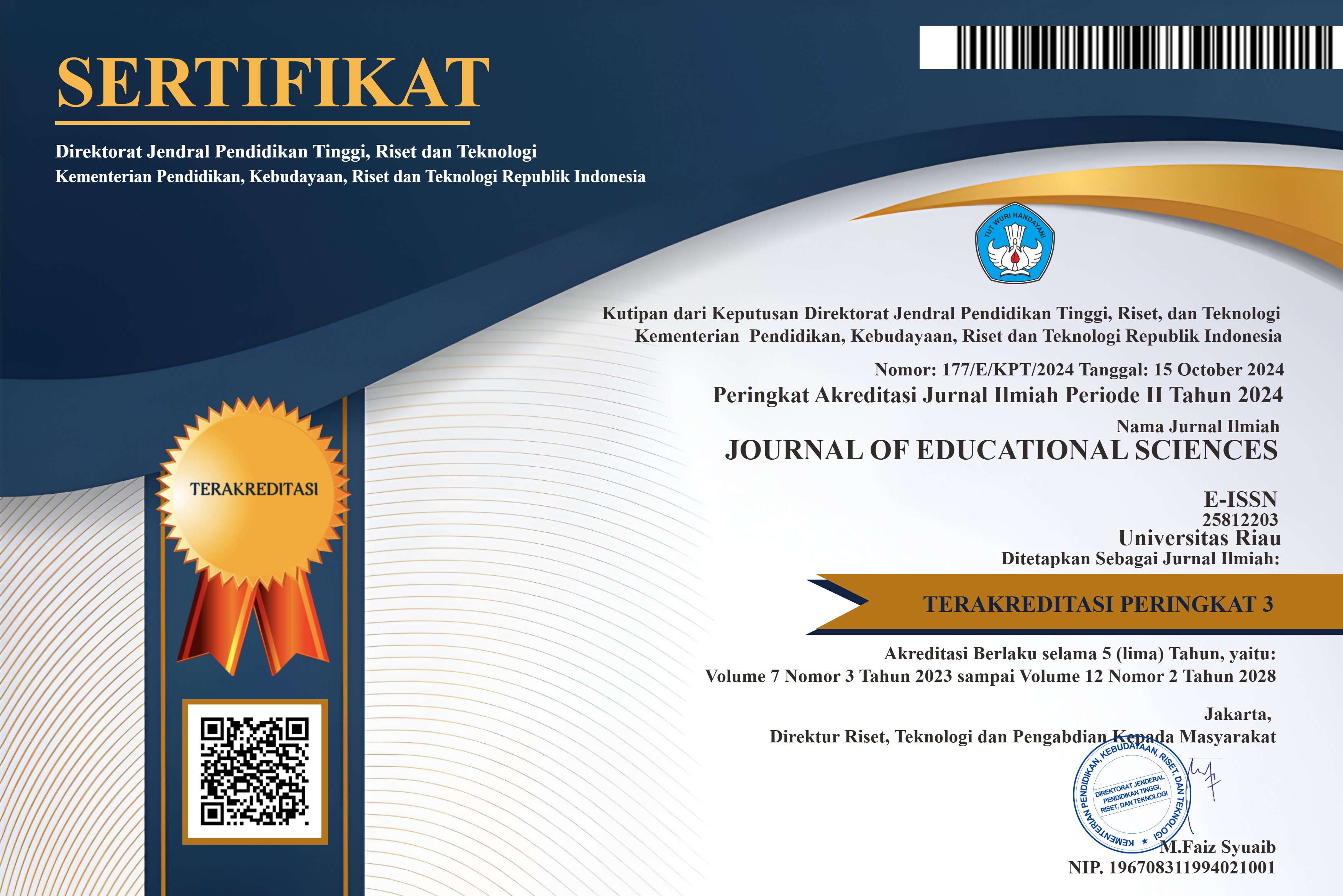Rap Music, Department Image and Student Intention; A Study in Japan
DOI:
https://doi.org/10.31258/jes.3.1.p.1-12Keywords:
Affective image, Cognitive image, Intention, Kosen, Mixed designAbstract
In the education context, the majority of studies on studentintentions (school selection, retention and dropout) focused on theinternal affecting factors (e.g., sex, family background, schoolperformance and satisfaction). Those on the external determinants (e.g.,school image) seem to be too thin, although these factors can be moreeasily and effectively regulated by education institutions. School image,however, does not stay unchanged but revolves over time. Nevertheless,the instability of school image has not been examined by previousresearch. Based on these understandings, this study aims to examine thechange of a school department’s images with the input of rap music as animage change agent. In addition, it investigates the correlation betweendepartment images and student intentions. Using the quantitative datacollected from 96 students in three low-grade classes (1-3) in a juniortechnology college in the Tohoku region of Japan, this study found thatthe impacts that a piece of rap music can produce is marginally limited,and the images of the department are decaying. In addition, the studyfigured out that department images are significant to the formation ofstudents’ intentions to go to the advanced course and to recommend thedepartment, but don’t have any significant effect on students’ intention tofinish their five-year study. Some implications for the management ofeducation activities to retain and recruit students are proposed based onthese outcomes.
Downloads
Downloads
Published
Issue
Section
License

This work is licensed under a Creative Commons Attribution-NonCommercial-ShareAlike 4.0 International License.













